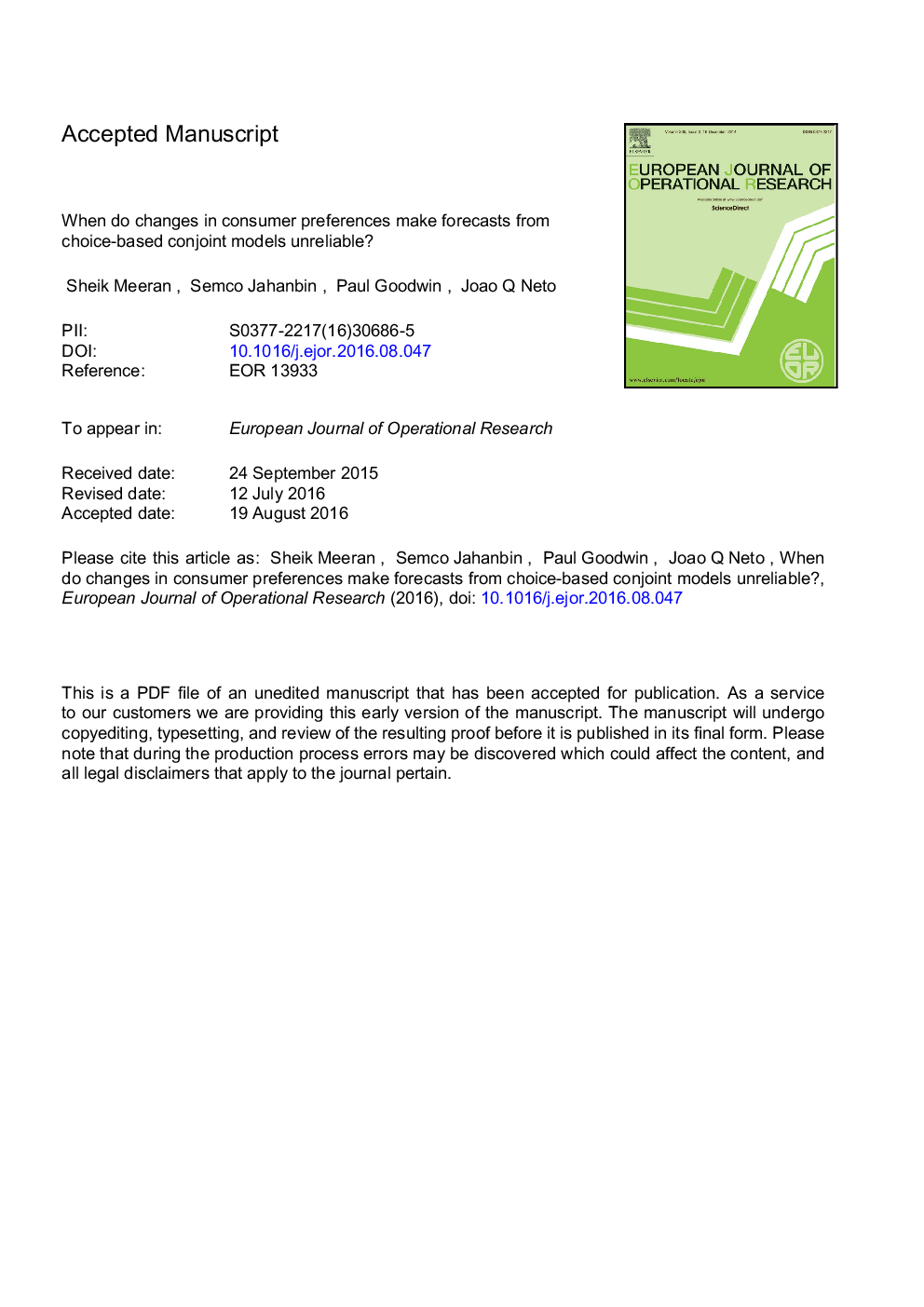| Article ID | Journal | Published Year | Pages | File Type |
|---|---|---|---|---|
| 4959992 | European Journal of Operational Research | 2017 | 30 Pages |
Abstract
Forecasting the sales or market share of new products is a major challenge as there is little or no sales history with which to estimate levels and trends. Choice-based conjoint (CBC) is one of the most common approaches used to forecast new products' sales. However, the accuracy of forecasts based on CBC models may be reduced when consumers' preferences for the attributes of products are labile. Despite this, there is a lack of research on the extent to which lability can impair accuracy when the coefficients estimated in CBC models are assumed to be constant over time. This paper aims to address this research gap by investigating the prevalence of lability for consumer durable products and its potential impact on the accuracy of forecasts. There are reasons to expect that lability may be particularly evident where a product is subject to rapid technological change and has a short product life-cycle. We carried out a longitudinal survey of the preferences of 161 potential consumers relating to four different types of products. We established that for both functional and innovative products: (i) the CBC models vary significantly over time, indicating changes in consumer preferences and (ii) such changes may cause large differences in forecasts of the probabilities that consumers will purchase particular brands of products. Hence employing models where coefficients do not change over time can potentially lead to inaccurate market share forecasts for high-tech, short life-cycle products that are launched even a short time after the choice-based modelling has been conducted.
Related Topics
Physical Sciences and Engineering
Computer Science
Computer Science (General)
Authors
Sheik Meeran, Semco Jahanbin, Paul Goodwin, Joao Quariguasi Frota Neto,
